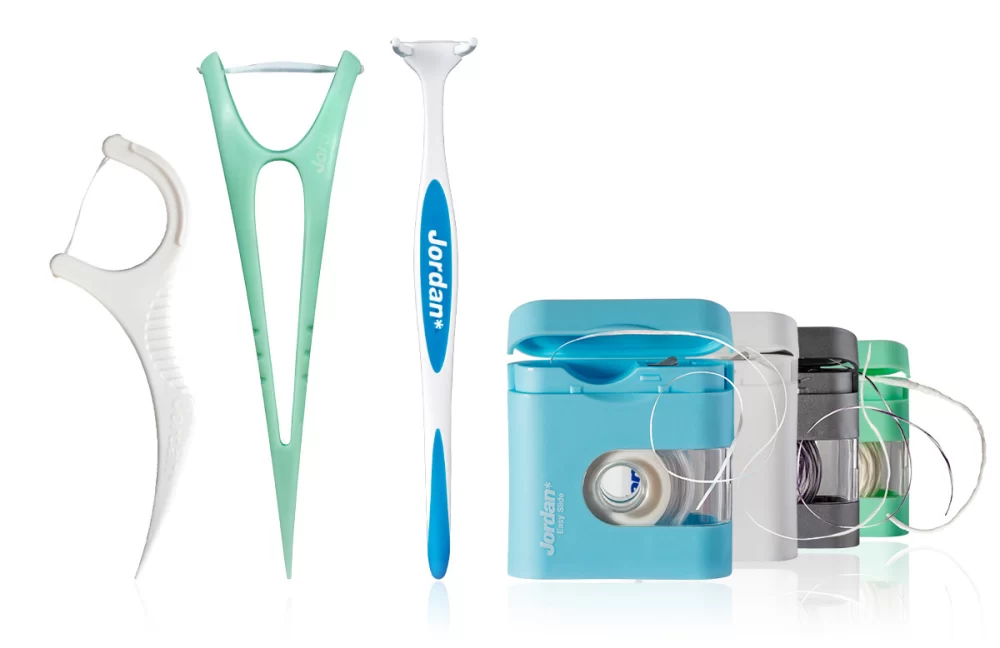
- 1-importance-of-dental-flossing
- 2-different-types-of-dental-floss
- 3-how-to-choose-the-best-dental-floss-for-you
- 4-tips-for-effective-flossing
- 5-personal-experience-and-case-study
- 6-where-to-find-quality-dental-floss-and-advice
1. Importance of Dental Flossing
Dental flossing is an essential part of oral hygiene that removes plaque and food particles stuck between teeth where a toothbrush can't reach. Without flossing, these particles can lead to cavities, gum disease, and bad breath.
Many people overlook flossing or struggle to find the right type of floss for their needs. Understanding the best dental floss types helps improve your oral care routine and maintain a healthy smile.
1.1 How Flossing Prevents Oral Problems
Floss disrupts plaque buildup and prevents the formation of tartar. It also stimulates gums, promoting circulation and reducing inflammation.
2. Different Types of Dental Floss
Dental floss comes in various materials, thicknesses, and designs. Here are the most popular types:
2.1 Waxed Floss
Waxed floss is coated to glide easily between tight teeth. It’s less likely to shred or break and is ideal for beginners or people with closely spaced teeth.
2.2 Unwaxed Floss
This type has no coating, providing a thinner feel and better grip on plaque, but it may fray more easily. It suits people with wider gaps between teeth.
2.3 Dental Tape
Dental tape is wider and flatter than traditional floss, making it comfortable for those with sensitive gums or larger spaces between teeth.
2.4 PTFE Floss
Made from polytetrafluoroethylene, PTFE floss slides effortlessly and resists shredding, perfect for tight contacts.
2.5 Flavored and Antibacterial Floss
Flavored floss adds a refreshing taste, while antibacterial floss contains agents that help reduce plaque and bacteria.
3. How to Choose the Best Dental Floss for You
Choosing the right floss depends on your dental anatomy, personal preference, and any specific oral health concerns.
3.1 Consider Gum Sensitivity
If your gums bleed or are sensitive, softer floss types like dental tape or waxed floss may be gentler and more comfortable.
3.2 Tooth Spacing
People with tightly spaced teeth often benefit from PTFE or waxed floss, while those with wider spaces might prefer unwaxed floss or dental tape.
3.3 Ease of Use
Some find floss picks or water flossers more convenient, especially if manual dexterity is an issue.
4. Tips for Effective Flossing
Proper flossing technique maximizes benefits and minimizes gum irritation:
- Use about 18 inches of floss and hold it tightly between your fingers.
- Gently slide floss between teeth without snapping.
- Curve floss around each tooth in a C-shape and clean beneath the gumline.
- Use a clean section of floss for each tooth.
- Floss at least once a day, preferably before brushing at night.
5. Personal Experience and Case Study
Emily, a longtime floss skeptic, switched to waxed PTFE floss after frequent gum bleeding with regular floss. Within weeks, she noticed less bleeding and fresher breath. Her dentist praised her improved gum health at the next visit, highlighting how the right floss type and technique can make a real difference.
6. Where to Find Quality Dental Floss and Advice
For those looking to explore the best dental floss types and get professional guidance, Dentistry Toothtruth offers expert recommendations on floss products and personalized oral care advice. Choosing quality products and learning proper flossing techniques can elevate your oral hygiene routine and protect your smile long-term.







 Children's Dental FunZone - Pediatric Dentist & Orthodontist - West LA4.0 (1410 review)
Children's Dental FunZone - Pediatric Dentist & Orthodontist - West LA4.0 (1410 review) Leo Yudkin DDS PA5.0 (1 review)
Leo Yudkin DDS PA5.0 (1 review) Dentistry for Madison4.0 (273 review)
Dentistry for Madison4.0 (273 review) Sydney K. Waterman, DDS0.0 (0 review)
Sydney K. Waterman, DDS0.0 (0 review) Coker Dental: Dr. William L. Coker, DDS4.0 (25 review)
Coker Dental: Dr. William L. Coker, DDS4.0 (25 review) Heritage Grove Family Dental - Plainfield Dental Clinic4.0 (1397 review)
Heritage Grove Family Dental - Plainfield Dental Clinic4.0 (1397 review) The Importance of Oral Health Education During Pregnancy for a Healthy Pregnancy
The Importance of Oral Health Education During Pregnancy for a Healthy Pregnancy Best Tips for Brushing Your Teeth Properly for Healthy Gums: Essential Techniques for Oral Health
Best Tips for Brushing Your Teeth Properly for Healthy Gums: Essential Techniques for Oral Health Why Skipping Dental Checkups Can Lead to Bigger Oral Health Problems
Why Skipping Dental Checkups Can Lead to Bigger Oral Health Problems Advantages of Porcelain Dental Restorations
Advantages of Porcelain Dental Restorations How Can Diabetes Cause Tooth and Gum Problems? Preventing and Managing Oral Health Issues
How Can Diabetes Cause Tooth and Gum Problems? Preventing and Managing Oral Health Issues Healthy Habits for Promoting Good Oral Health and Hygiene: Tips for a Healthy Smile
Healthy Habits for Promoting Good Oral Health and Hygiene: Tips for a Healthy Smile